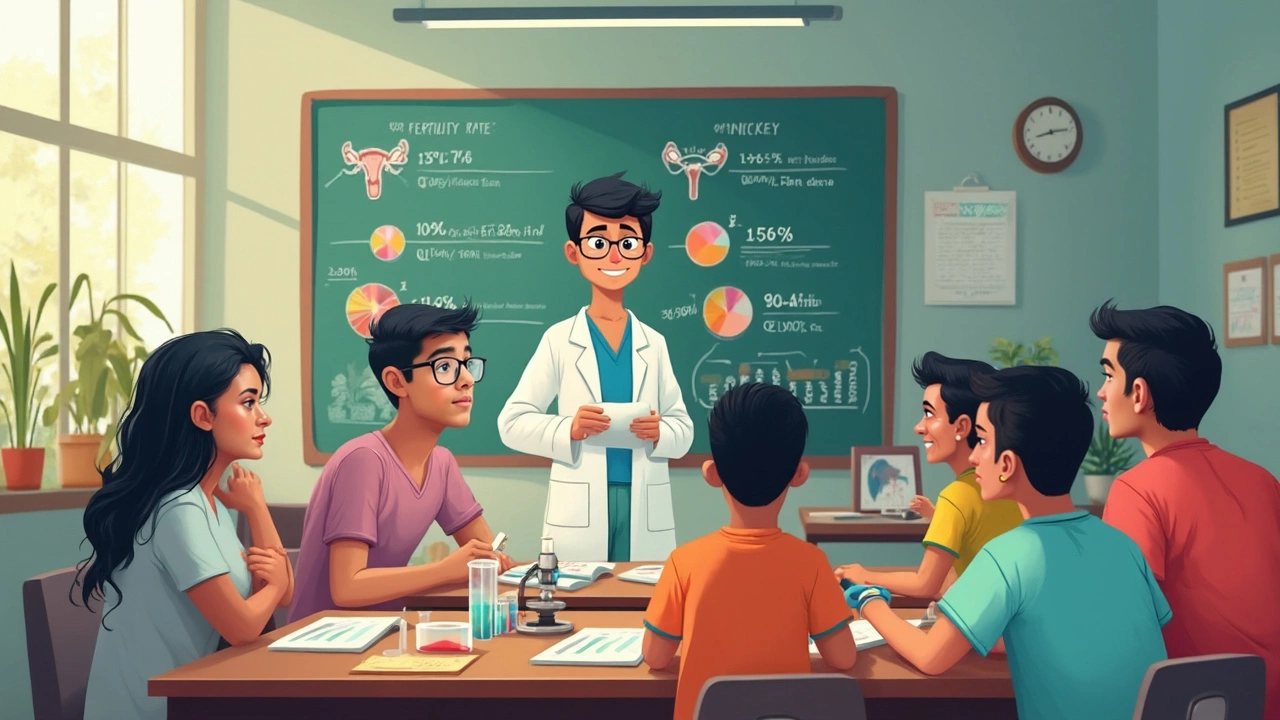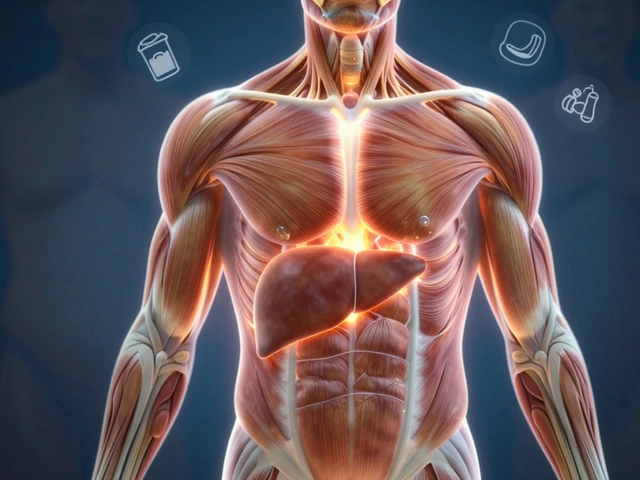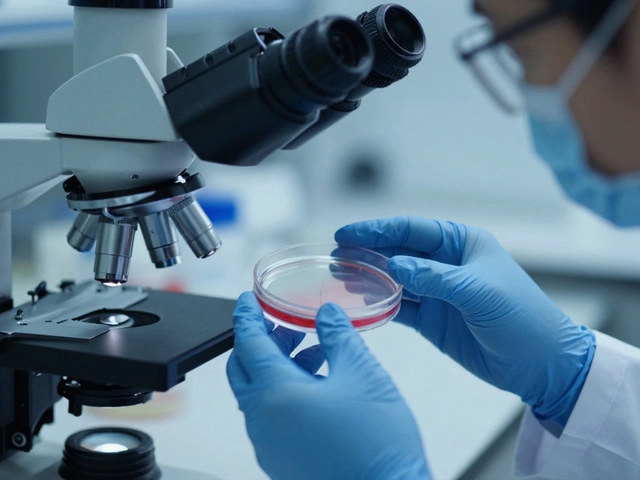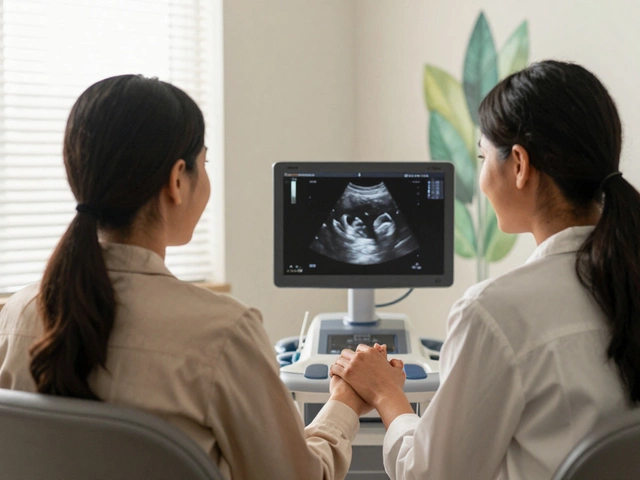Quick Google search, and you’ll run into forums loaded with questions like, “Can IVF babies have their own kids naturally?” Here’s the real deal—this isn’t just a curiosity. Plenty of parents, and even those IVF kids all grown up, want straightforward answers.
This isn’t some theoretical debate. It matters for families planning ahead, and for people questioning what their future might look like, fertility-wise. So, let’s start by cutting through all the noise, rumors, and wild stories. Most of what you hear about IVF kids being ‘different’ in fertility is outdated nonsense. But where did this idea even come from, and what does modern research actually show? You’ll be surprised—science has some good news.
- Where Did the Fertility Rumor Start?
- What Science Says About IVF Babies’ Future Fertility
- IVF, Genes, and The Real Causes of Infertility
- Surprising Facts Most People Don’t Know
- Tips for Parents and Young Adults Born Through IVF
Where Did the Fertility Rumor Start?
This whole idea that IVF babies might struggle to have kids naturally wasn’t something parents worried about in the beginning, mostly because IVF was brand new in the late 1970s and early 1980s. The first IVF baby, Louise Brown, was born in 1978, and honestly, nobody knew what to expect long-term. Everyone just wanted to see if the science worked.
The rumor really picked up as more babies were born via IVF in the ‘80s and ‘90s. That’s when stories started to spread, usually based on a pretty simple misunderstanding: if a parent needed help getting pregnant, their child would probably have trouble down the line, too. There wasn’t any evidence—just the assumption that the apple doesn’t fall far from the tree.
This stuck, probably because infertility itself is confusing and private. It makes sense for people to connect the dots, even if the science wasn’t there. Back then, fertility clinics didn’t have long-term studies on how IVF kids would do as adults, so the rumors kept growing. It also didn’t help that early tabloid articles and TV shows loved to make IVF look risky or unnatural, adding more fuel to the fire.
Let’s look at a quick breakdown of important dates and how public perception shifted:
| Year | Event |
|---|---|
| 1978 | First IVF baby, Louise Brown, born in the UK |
| 1982-1990 | IVF babies become more common worldwide, but little is known about future effects |
| 1990s | Media spreads stories about possible risks, including fertility fears |
| 2000s | Long-term studies on IVF children start to appear |
To sum it up: the fertility rumor started with a lack of data, a dash of fear, and a bunch of bad headlines. But science has come a long way since then. Now, we actually have real answers about IVF babies, and they might surprise you.
What Science Says About IVF Babies’ Future Fertility
It’s natural to wonder if being born through IVF affects a person’s own chances of having kids the old-fashioned way. For years, people guessed that an “IVF baby” would have a harder time. Here’s what the research actually shows—and it’s way more positive than those old rumors suggest.
First off: the process of IVF doesn’t change a child’s basic biology. Several big studies from Europe and Australia tracked thousands of kids born through IVF into adulthood, and they found no difference in puberty, hormone problems, or reproduction compared to kids born naturally. Most leading doctors and researchers now agree that being born with a little medical help doesn’t mean you’ll struggle to start a family yourself.
Check out this data from Denmark, which keeps track of IVF outcomes really closely:
| Study Year | # of IVF Adults Followed | Fertility Problems Compared to Non-IVF |
|---|---|---|
| 2018 | 4,000+ | No significant difference |
| 2022 (Australia) | 2,876 | No increased risk |
Truth is, your odds of natural conception mostly depend on your genes—meaning, whatever caused infertility in your parents could be passed on. But IVF itself doesn’t "program" infertility. For example, if the infertility was from blocked fallopian tubes, that wouldn’t affect your future fertility. But if it was a genetic problem, like a rare chromosomal issue, then you might inherit it whether you were conceived through IVF or not.
Doctors now say there’s no reason for IVF babies to worry about their odds of becoming parents. They usually go through puberty at the same age as everyone else, hit the same hormone milestones, and are just as likely to conceive naturally—unless they inherited a fertility condition from their mom or dad. If you’re in doubt, a simple fertility check-up as an adult can clear things up before you start planning a family.

IVF, Genes, and The Real Causes of Infertility
Let’s lay out the facts: not every couple who turns to IVF is dealing with inherited infertility. In reality, the reasons why people use IVF are all over the map. Sometimes it’s blocked fallopian tubes, endometriosis, or just age. Sure, in some cases, genetics are involved, but most of the time, the reasons are unrelated to anything passed down through family trees.
Here’s something most folks don’t realize: only a small slice of infertility cases are caused by genetic problems, like chromosomal issues or rare gene mutations that get handed down. Most causes—think low sperm count due to infection, polycystic ovary syndrome (PCOS), or even just stress—aren’t hereditary at all.
- If a parent struggled with something like blocked tubes or a uterine issue, that’s not something their child is likely to inherit.
- Conditions like PCOS can run in families, but even then, it doesn’t mean a child will deal with infertility or need IVF themselves.
For people born after IVF treatment, the odds of inheriting a direct cause of infertility from their parents are pretty slim, especially when most IVF is used for reasons with nothing to do with genes. Recent studies in countries tracking IVF kids into adulthood haven’t shown a major increase in fertility problems compared to their peers born naturally.
The science gets even clearer: if the reason for using IVF was male-factor infertility (things like low sperm count), yes, there’s a small chance that trait could be passed on, especially for specific genetic issues. But modern clinics offer genetic counseling so parents know what to expect. And, here’s the kicker—most people conceived by IVF have as good a shot at natural conception later as anyone else.
Bottom line? If you’re an IVF baby, or have one at home, there’s no built-in fertility curse. Focus on everyday health, genetics isn’t usually the villain here.
Surprising Facts Most People Don’t Know
Alright, so you’ve probably heard plenty of assumptions about IVF babies and their future in making kids of their own. Let’s set the record straight with some facts that rarely make the headlines.
First thing—most IVF babies are born just as healthy as other kids. There’s no science-backed proof that being conceived through IVF messes up your chances of having kids later. A 2023 report in the journal Human Reproduction tracked IVF-born adults and found their natural conception rates looked a lot like everyone else’s. Not convinced? Take it from the researchers themselves:
“We found no significant difference in fertility between adults conceived by IVF and those conceived naturally.” — Dr. Anna Czarnomska, Human Reproduction Journal, 2023
Here’s another curveball: your fertility is mostly tied to why your parents needed IVF—not the fact that you were born via IVF. If your mom’s IVF was needed because of a completely non-genetic issue—like blocked tubes—you’re not likely to inherit fertility problems. That’s a key detail people usually miss.
Let’s get specific with some data. Below is a quick table showing some myths and the truth:
| Common Belief | Actual Finding |
|---|---|
| IVF babies are always less fertile | No difference in fertility rates compared to peers |
| IVF leads to genetic infertility problems | Only true if the parents' infertility had a genetic reason |
| IVF kids have more complications in pregnancy | No higher risk proven in adulthood |
One fun fact: Louise Brown, the world’s first IVF baby, gave birth naturally in 2007. That’s the original proof IVFs can do just fine in the baby-making department. Also, there’s research from Denmark showing that by age 26, almost 40% of IVF-conceived adults had already started families in the usual way—no special help needed.
If you or your kid was born with IVF, don’t sweat the future. Regular yearly checkups, a healthy lifestyle, and asking family doctors about any specific genetic risks are way more important than worrying about the IVF label.

Tips for Parents and Young Adults Born Through IVF
Here’s the thing—if you or your child was born via IVF, life’s pretty normal. Still, some folks wonder if there’s anything special you should do about health or future family planning. Let’s cut through the noise and stick to real, practical advice.
- Talk openly about your birth story: IVF isn’t something to be weird about. Being honest with your kids helps them understand their story, ask questions, and feel confident about it.
- Routine health checks matter: IVF kids don’t need extra doctor visits compared to anyone else. The usual check-ups for puberty and overall reproductive health are just fine.
- Keep track of family health history: The reason for infertility in one generation could be hereditary. If you know the cause—like genetic issues—be upfront with your child, so they’re in the loop as adults.
- Don’t assume fertility problems: Studies including one in the journal Human Reproduction (2023) confirm that most IVF-born adults have the same chances of conceiving naturally as others. If fertility issues run in the family, that’s usually the deciding factor, not IVF itself.
- Stay updated: Fertility, genetics, and science move fast. If new research comes out, check reliable sources or ask your doctor. Don’t just trust headlines or the latest viral post.
Check out this quick comparison table that sums up what’s been observed in research so far:
| Question | What Science Says |
|---|---|
| Are IVF children less fertile? | No, there's no evidence of reduced fertility in adulthood. |
| Do they need special medical follow-ups? | Standard health checks only, unless hereditary issues are known. |
| Increased risk of birth defects? | Risk is slightly higher (about 1–2% more), but usually not related to future fertility. |
| Should IVF be kept a secret? | No benefit. Openness helps with trust and confidence. |
Here’s the bottom line: If you’re a parent, encourage open chats and don’t build up worries that aren’t backed by facts. If you’re an IVF-born adult, know your IVF babies label doesn’t define your chances of starting a family. Just take the same common-sense steps as everyone else—know your health history, get regular check-ups, and don’t overthink the IVF part.








